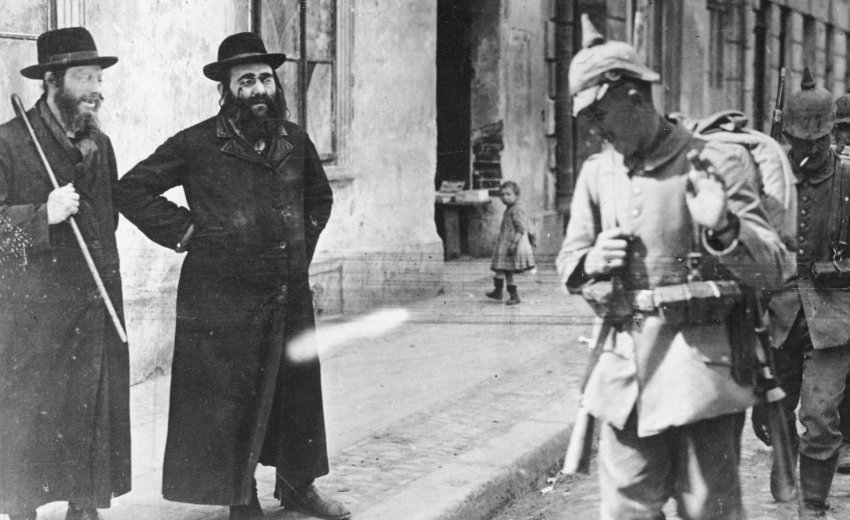We have examined and dissected the events of 1984 ad nauseum.
Plenty of reports lay the history bare; who did what to whom is no longer a secret except to die-hard loyalists of the Indian government. Yes, there remain those who having eyes, see not and having ears, hear not. That will not easily change.
Today I come to Sikhs and 1984 from a very different direction.
In life there are many dots to connect. I offer you today a limited few from the pre-WW II history that I didn’t know existed until very recently. In the Garden of Beasts, is a 2011 book by Eric Larson. Its subtitle “Love, Terror, and an American Family in Hitler’s Berlin” tells us that it is not a scholarly tome on history; but it brings out historical nuggets that have become pivotal to the Jewish sense of self.
In 1933, President Franklin Delano Roosevelt appointed William Dodd, an academic historian, the ambassador of the United States to Germany. Hitler had just become the Chancellor of Germany and the future would soon unfold in new and unexpected ways.
You might ask: So, what does that have to do with 1984 and the plight of Sikhs in and out of India?
Larson tells us that when Ambassador Dodd and his family arrived at his new job in the Germany of 1933, Hitler’s storm troopers were already tightening restrictions against Jews who were being increasingly targeted by Nazis in brutal violence.
Keep in mind that Jews then formed only one percent of Germany’s population, but they were a prominently visible minority.
Larson makes a point that I want to bring to your attention: It was a different world then. Public opinion in the United States was isolationist. It is important to know that neither the American public nor the State Department was generally sympathetically disposed to Jews. In fact, the Ambassador’s daughter, Martha, noted the “intoxication of the new regime (Nazis) that worked like wine in her;” she was enthralled enough by the Nazis that she wrote in her memoir, “We sort of don’t like the Jews anyway.” Remember that attitudes shaped by organized Christianity, until very recently, were generally hostile to the Jews; for example, one could routinely hear sermons and diatribes holding the Jews responsible for the killing of Jesus.
Some of that anti-Semitism still lingers though it is often sub-rosa. For example, until the Second World War, Jews were largely denied admission to medical schools in this country; in the 2008 presidential election the mother of George Allen, a potential Republican candidate from Virginia, hid her Jewish antecedents because she was fearful that the connection might backfire against her son. Many more examples of anti-Jewish bias exist.
Given the general climate of anti-Semitism, the State Department was quite comfortable in letting Hitler have his way on the Jewish question. President Roosevelt himself instructed Ambassador Dodd that the German treatment of Jews was shameful, but it was not the business of the American government. Most significantly, according to Larson, even the American Jewish leaders seemed to be ambivalent and divided.
We know now that the story of prewar Germany cannot, and must never be isolated from the Holocaust, book burnings, Reichstag trial, Sobor, Dachau and other concentration camps, and the Nuremberg Trials.
It seems self-evident that the story of post-independence India cannot and should never be divorced from the history of the partition of 1947, the lumping of Sikhs with others in the Hindu Code Bill in the Indian Constitution, the Punjabi Suba imbroglio, the 1984 attack on the Golden Temple and so many other places of Sikh worship, the attempted genocide of Sikhs in the decade from the mid-80’s onwards, and the denial of justice that continues till today. This is not a comprehensive listing; I am sure readers can provide many more instances.
It is also obvious, except to those who refuse to see, that the sins of India against its minorities – Sikhs and others -- will continue to be forgiven by the Western world in the interest of global geo-political and economic necessities. Hence, today India does what it needs to do to have an acceptable global image; it presents the face of a few good, respectable, competent Sikhs, as if to hide the reality of rotting food by serving it with a surfeit of cream and sugar.
We know that grave injustice happened in India, even though Sikhs, like the Jews of a different time, continue to present divisive and ambivalent opinions. The Jews made up barely one percent of Germany then; Sikhs were and remain less than two percent of India.
What we need to learn today is how and why the generally anti-Semitic outlook of the American government and people changed, and did so dramatically, that now someone who is visibly anti-Jewish probably won’t be elected dogcatcher even in the smallest two-bit town in America.
How did this cultural paradigm shift occur within just one generation? Anti-Semitism in the United States began to decline in the late 1940s. As Americans became aware of the Holocaust, many found themselves ardently opposed to views which had been used to justify such genocide. The change didn’t come overnight but there is not even an iota of doubt that it did. Even Germany seems to have seen the light.
Do these events and prewar attitudes about Jews display a parallel to our Sikh existence today? Are there some lessons to be learned here? Does this history of the Jews have something to teach us?






